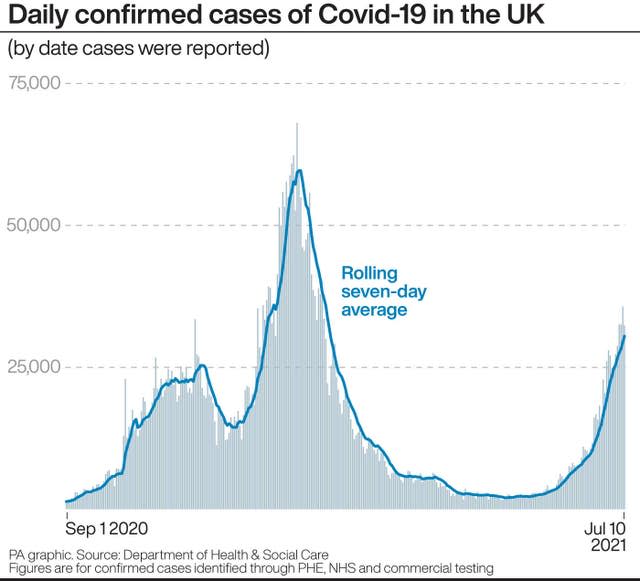Fears NHS backlog could soar to 13 million on waiting list – Javid
New Health Secretary Sajid Javid has warned that NHS waiting lists could rocket to 13 million in the coming months as concerns rise over the backlog faced by the health service.
Speaking to The Sunday Telegraph in his first interview since taking up the job two weeks ago, Mr Javid said the growing number of people waiting for non-Covid treatment on the NHS had been what shocked him the most since returning to the Cabinet following Matt Hancock’s resignation.
He told the newspaper: “What shocked me the most is when I was told that the waiting list in going to get a lot worse before it gets better.

“It’s gone up from 3.5 million to 5.3 million as of today, and I said to the officials so what do you mean ‘a lot worse’, thinking maybe it goes from 5.3 million to six million, seven million. They said no, it’s going to go up by millions… it could go as high as 13 million.
“Hearing that figure of 13 million, it has absolutely focused my mind, and it’s going to be one of my top priorities to deal with because we can’t have that.”
It comes as NHS trusts are facing the combined hit of Covid cases rising again, the backlog for other treatments including cancer checks and heart disease, and staff shortages due to workers having to self-isolate if they are ‘pinged’ by the Covid app.

NHS Providers, the membership organisation for NHS trusts in England, warned that up to a fifth of staff could be absent from one NHS trust in just three weeks from now, potentially leading to the cancellation of as many as 900 operations.
Mr Javid confirmed to The Sunday Telegraph that there was “every reason to think that we can take a more proportionate and balanced approach to the isolation policy” for NHS staff after No 10 suggested they could be exempt from having to stay at home if they had two jabs.
He also discussed NHS pay and that raising taxes to fund social care could be a “practical and obvious” solution.
Earlier, Professor Helen Stokes-Lampard, chairwoman of the Academy of Medical Royal Colleges, said deaths were beginning to rise again too.
She told BBC Radio 4’s Today programme: “We’ve only just heard in this bulletin about the rising numbers of cases, the rising numbers of people requiring hospital treatment, in intensive care and sadly deaths are starting to rise again, too.
“There seems to be a misapprehension that life will return to normal from then (July 19), and that we can throw away all the precautions, and frankly, that would be dangerous.”
Warnings over July 19, which is being called freedom day, were echoed by Greater Manchester metro mayor Andy Burnham, who told the Observer it was more like “anxiety day”.
He told the newspaper: “The Government is simply wrong to frame everything from here as a matter of pure personal choice. It is not.
“Many people who are vulnerable to the virus have to use public transport and do their food shopping in person. That is why the wearing of face coverings in these settings should have remained mandatory. I will be strongly encouraging the people of Greater Manchester to continue to wear masks on public transport out of respect for others.”
In his Sunday Telegraph interview, Mr Javid said anyone who would not wear a mask in an enclosed space was “just being irresponsible” despite it becoming guidance rather than the law in Step 4 of restrictions lifting.
Labour’s shadow health secretary Jonathan Ashworth said: “Given Sajid Javid now considers it irresponsible to not wear masks then it would be equally irresponsible for his government to carry on with the plan to lift mask requirements while infections are heading to 100,000 a day.”
The rate of new cases of coronavirus in most areas of England is now back at levels last seen during the winter.
Patient numbers have risen to levels last seen around three months ago.
And there has been a very slight increase in the average number of deaths reported each day of people in England who died within 28 days of testing positive for Covid-19.
But this is still far below the sort of numbers seen in January and February of this year.
The Sunday Times reported that No 10 had asked the Joint Committee on Vaccination and Immunisation (JCVI) to look at whether the wait between the two doses of the vaccine could be cut to four weeks in light of the rise in cases.
The Academy of Medical Royal Colleges said in a statement: “There is little doubt that things will get worse before they get better.”


